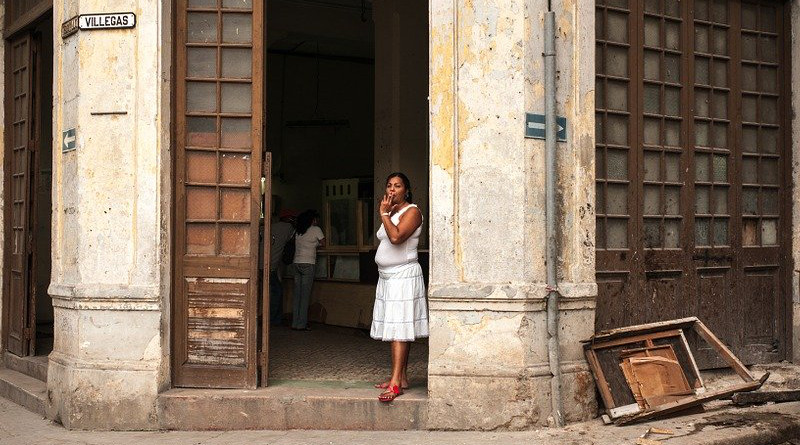Cuba’s Imaginary Covid-19 Cures
By IWPR
By Carla Gloria Colome
On May 22, Cuban President Miguel Díaz-Canel addressed the nation over the ongoing fight against coronavirus.
“Science and medicine in Cuba has saved the lives of 80 per cent of critically-ill patients infected with the Sars-CoV-2 virus, while in the rest of the world 80 per cent of serious and critically-ill patients have died,” he said.
Since then, he and other government officials have repeated this message numerous times.
However, there is no evidence to back this assertion up. Outside Cuba, the mortality rate due to Covid-19 is far from 80 per cent, and there is no evidence that Cuban medicine is saving patients who would otherwise die in other countries.
Similar statements about the efficacy of Cuban-developed medicines to treat the virus have also been unsubstantiated.
In March, studies in China showed a mortality rate of between 50 and 60 per cent of patients in intensive care. This was followed in June by further research showing that the mortality rate in China had reduced to 38 per cent.
Around the world, the mortality rate also fell as specialists developed better treatments and public health systems rallied to deal with the crisis.
The Chinese study included data collected in hospitals in other countries. Mortality did not exceed 40 per cent anywhere. The researchers concluded that “the current preliminary data does not suggest that ICUs’ mortality rates are unusually high for Covid-19”.
At the end of June, researchers in the United Kingdom published an analysis of global reports on mortality in severe and critical cases of Covid-19. They concluded that current trends were consistent and that the percentage of those patients who died from Covid-19 had fallen by up to 40 per cent.
Cuba has not published information to determine the mortality rates in its severe or critical cases of coronavirus. This means that there is no data to back up Díaz Canel’s assertion that Cuban medicine had saved 80 per cent of critically-ill patients.
However, last August, a group of Cuban scientists published an article that included previously unseen data about Covid-19 cases on the island.
The study referred to the efficacy of a Cuban medication called Heberon tested on most of the country’s confirmed cases up to the end of June.
The study showed that the mortality rate of critically-ill patients in younger age groups and among those with underlying conditions was 26 per cent. Another group consisting of older people and younger patients admitted to intensive care experienced a 63 per cent mortality rate.
Neither of the two groups reached a survival rate of 80 per cent, as Díaz-Canel said.
Since this study was carried out, the number of Covid-19 cases in the country has doubled.
OFFICIAL PRAISE – BUT NO PROOF
The president’s statements were clearly intended to support the official narrative that Cuba is a pharmaceutical powerhouse that has developed successful treatments against Covid-19. However, this claim is also unsubstantiated.
Another two Cuban drugs tested during the pandemic, Jusvinza and Itolizumab, aimed to reduce the immune system overreaction that causes many infected with coronavirus to die – although this so-called cytokine storm is not the only cause of death among Covid-19 patients.
Government officials and the state media praised both treatments. María del Carmen Domínguez Horta, the scientist responsible for developing Juzvina, told state television that “so far in the scientific literature there is no single product that provides similar results in critically-ill patients”.
Health authorities announced the results of Itolizumab with the same enthusiasm. Francisco Durán García, the national director of epidemiology, said that 80 per cent of critically-ill patients who took Itolizumab survived.
Despite such statements, neither Juzvinza nor Itolizumab have passed the necessary tests to prove they are truly effective. They have not been tested among large numbers of patients or using control groups who do not take the medication.
So far, there is little information about these drugs in scientific publications.
Only one Cuban study, published on a free online platform and not certified by peer review, reported on the supposed success of Jusvinza in severe or critical cases of Covid-19.
The study said that last April, Jusvinza was tested in 16 patients, 11 in a critical state and five were in a severe condition. Two patients died, but not of Covid-19. According to scientists, they died after having contracted other infections at the hospital.
Two other non-peer reviewed Cuban reports published on the use of Itolizumab, the first involving a research study conducted on 24 people with only 13 patients in severe or critically ill condition. The article did not include whether any of the trial participants had died.
The second study offered more information, including detail on the medical conditions of the patients given Itolizumab. However, none of the participants in the trials were categorised as critically ill.
Ultimately, the available facts do not bear out the extravagant claims of Cuban officials. The country’s overall mortality rate from Covid at the beginning of October was two per cent – very similar to rates in neighbouring countries such as Costa Rica and Panama.
This article was published by IWPR

